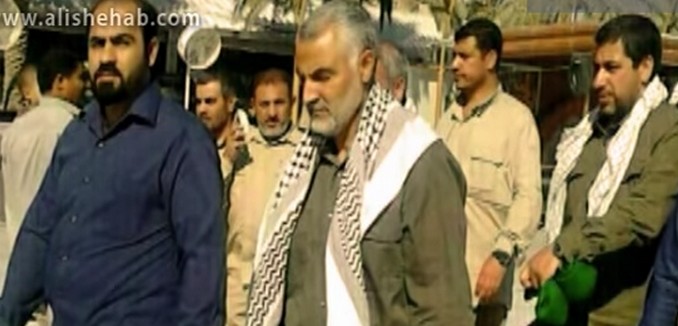Qassem Suleimani, the Islamic Revolutionary Guard Corps (IRGC) general who was implicated in the 2011 Iranian plot to assassinate Adel Al-Jubeir, then Saudi Arabian ambassador to the United States, will be removed from two lists of sanctioned individuals as part of the nuclear deal with Iran, Business Insider reported yesterday.
As a result of the deal, Qasem Suleimani, the commander of the Iranian Revolutionary Guards Qods Force and the general responsible for overseeing Iran’s network of proxy organizations, will be removed from European Union sanctions lists once the agreement is implemented, and taken off a UN sanctions list after eight or fewer years.
Iran obtained some key concessions as a result of the nuclear agreement, including access to an estimated $150 billion in frozen assets; the lifting of a UN arms embargo, the eventual end to sanctions related to the country’s ballistic missile program; the ability to operate over 5,000 uranium enrichment centrifuges and to run stable elements through centrifuges at the once-clandestine and heavily guarded Fordow facility; nuclear assistance from the US and its partners; and the ability to stall inspections of sensitive sites for as long as 24 days. In light of these accomplishments, the de-listing of a general responsible for coordinating anti-US militia groups in Iraq — someone who may be responsible for the deaths of US soldiers — almost seems gratuitous.
Initially, there was some confusion whether the person named was indeed the IRGC commander, as Lee Smith reported for Tablet.
Among the latter is Qassem Suleimani, the head of the Quds Force, the Revolutionary Guards expeditionary unit. Suleimani is responsible for exporting Iranian terrorism and Iranian-sponsored terrorism—like Hezbollah’s—abroad. His other duties include managing Iran’s war on behalf of Bashar al-Assad in Syria. When asked why the JCPOA was giving a get out of jail free card to a man responsible for so much violence, death and suffering, John Kerry contended that he wasn’t. It’s some other guy with a similar name, said Kerry, incorrectly. The State Department later backpedaled and confessed that while Suleimani was getting off the U.N. list, he was still under U.S. sanctions and would never get off that list.
Taking Suleimani off the UN list was non-negotiable, the administration said. Same with all the other entities and personages, many hundreds of them, including scores of IRGC officials, as well as various corporations the clerical regime used in order to purchase, steal, and transfer sensitive nuclear materials. If some of the names sound peculiarly non-Persian, that’s because the regime set up all sorts of front companies in order to avoid sanctions.
Suleimani, according to a report two years ago in The Wall Street Journal, was largely responsible for coordinating the IRGC and Hezbollah to support the regime of Syrian President Bashar al-Assad. In Iraq, Suleimani has taken control of the Shiite militias fighting against the Islamic State of Iraq and Syria (ISIS). The militias have been reported to be just as brutal as ISIS.
Though Suleimani’s activities subjected him to a United Nations imposed travel ban, that ban has not been enforced.
[Photo: Ali Shehab / YouTube ]




